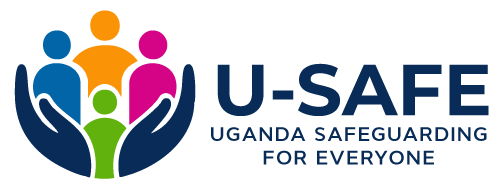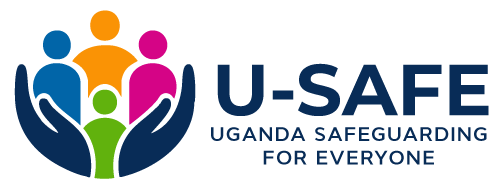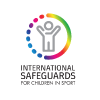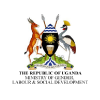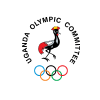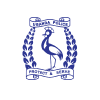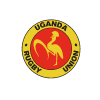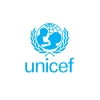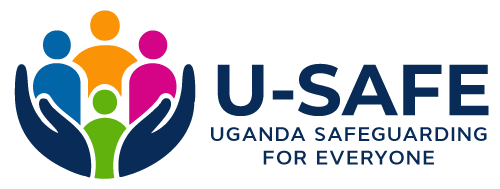FREQUENTLY ASKED QUESTIONS
Safeguarding in sport is not just about policies and procedures; it’s about people.
It’s about building safe, supportive environments where everyone, from elite athletes to grassroots participants, can grow, compete, and enjoy sport free from violence, harassment, or abuse.
But what does safeguarding truly mean? Who does it protect? And why is it essential at every level of the game?
At Uganda Rugby (U-SAFE), we believe safeguarding is more than a box to tick. It is a mindset, a shared responsibility, and an urgent call to action.
Safeguarding means creating an environment where everyone is protected from violence, harassment, abuse, and exploitation. It includes all actions taken to prevent harm, as well as steps to recognise, report, respond to, and remedy any actual or potential abuse or unsafe behaviour.
At its core, safeguarding ensures that rugby, like all sport, is a space of respect, fairness, and safety for everyone involved.
This applies to:
-
Children and young people
-
Athletes of all ages and levels
-
Coaches, volunteers, referees, match officials, and staff
-
Marginalised or vulnerable individuals and groups
Safeguarding is not just about responding to problems; it’s about building systems that prevent harm, protect people, and empower participation. From the training ground to the boardroom, safeguarding ensures that the structures around rugby and sport promote dignity, inclusion, and wellbeing for all.
Sport has the power to inspire, unite, and transform lives. Yet without proper safeguarding measures, this transformative power can become a source of profound harm.
The Reality of Risk in Sport
Athletes, coaches, officials, and participants worldwide face serious risks that threaten both their wellbeing and their sporting experience:
Sexual abuse and exploitation — Power imbalances and closed environments create vulnerabilities that predators can exploit
Bullying and emotional harm — Competitive pressures and hierarchical structures can foster cultures of intimidation and psychological abuse
Neglect, coercion, and physical abuse — The pursuit of performance can cross ethical boundaries, leading to dangerous training practices and normalised violence
Discrimination and unsafe practices — Bias based on identity, background, or ability can exclude participants and create hostile environments
These harms are not isolated incidents or “one-off” problems. They represent systemic risks embedded within sporting structures and cultures. Research consistently shows these issues occur across every sport, at every competitive level, and in every region of the world.
The Safeguarding Solution
Safeguarding transforms sport from reactive crisis management to proactive harm prevention. It creates frameworks that:
- Prevent harm before it occurs through clear policies, training, and risk assessment
- Empower participants to recognize inappropriate behavior and speak up with confidence
- Enable organisations to respond effectively and responsibly when concerns arise
- Build cultures where safety, respect, and inclusion are fundamental values
When safeguarding is embedded throughout sporting organisations, it doesn’t diminish the competitive spirit or passion that makes sport special. Instead, it ensures that everyone can participate safely and reach their full potential.
The question isn’t whether safeguarding is necessary; it’s whether it is effective. It’s how quickly and comprehensively we can implement it to protect the integrity of sport and the well-being of all who participate in it.
A truly safe sport environment is one where everyone can participate, enjoy, and thrive — free from harm, abuse, or discrimination. It means creating a culture of safety and respect, where people’s rights are protected and upheld.
At a minimum, effective safeguarding in sport should include:
-
A clear safeguarding policy that shows commitment to keeping sport safe for all.
-
Practical procedures for recognising and responding to safeguarding concerns.
-
Advice and support to help everyone understand their role in keeping others safe.
-
A risk management approach to prevent harm before it happens.
-
A clear code of conduct that sets expectations for behaviour.
-
Safer recruitment and regular training for staff, coaches, and volunteers.
-
Working in partnership with others to promote and embed safeguarding practices.
-
Ongoing monitoring and review to spot risks early and make continuous improvements.
Above all, organisations must listen to and centre the voices of those most affected, especially survivors, children, and people from marginalised communities, when designing and improving safeguarding systems.
U-SAFE stands for Uganda Safeguarding for Everyone in Rugby. It is an initiative of the Uganda Rugby Union dedicated to ensuring that rugby is a safe, respectful, and inclusive space for all people involved in the game, regardless of age, gender, background, or ability.
U-SAFE promotes awareness, prevention, and response to all forms of abuse, harm, or misconduct in rugby. Whether you are a player, coach, referee, volunteer, supporter, or administrator, U-SAFE works to protect your right to participate in rugby free from violence, harassment, neglect, or exploitation, both on and off the field.
Safeguarding is essential in rugby because the sport relies on trust, teamwork, respect and discipline. These values must extend beyond the pitch. Safeguarding helps to prevent abuse, violence, harassment and exploitation. It creates an environment where everyone feels safe, included and valued, from grassroots level to elite competitions.
Safeguarding applies to every person involved in rugby. This includes players of all ages, coaches, referees, volunteers, administrators, spectators and support staff. It ensures protection for everyone, including those who may be more vulnerable, such as children, people with disabilities, women, older adults, and members of marginalised groups.
No. While protecting children and young people is a key part of safeguarding, it also includes adults who may be at risk of harm. This may be due to age, disability, social status or other vulnerabilities. Safeguarding ensures that all individuals involved in rugby are treated with care, fairness and respect, and are protected from any form of abuse or mistreatment.
U-SAFE works with clubs, schools and rugby organisations to put safeguarding into action. This includes:
-
Developing and enforcing safeguarding policies and codes of conduct
-
Providing training and awareness sessions
-
Supporting the safe reporting of concerns or incidents
-
Responding to and managing cases of misconduct or harm
-
Promoting respectful behaviour on and off the field
-
Ensuring inclusive and safe spaces for all participants
If you witness or experience behaviour that causes concern, you can:
-
Speak to your club’s or school’s Safeguarding Officer
-
Use the online reporting form at www.safeguardrugby.org
-
Contact the U-SAFE team directly via email or phone, as listed on the website
All reports are handled with confidentiality, care, and professionalism. Your safety and privacy will be respected.
U-SAFE is working to ensure that every club and school involved in rugby appoints and trains at least one Safeguarding Focal Point. These individuals play a key role in promoting safe sport, supporting participants and responding to concerns. The goal is for every rugby environment in Uganda to have a visible and active safeguarding presence.
U-SAFE offers a variety of training opportunities for coaches, match officials, volunteers and administrators. These include:
-
Introductory safeguarding awareness courses
-
Role-specific training for people in leadership or child-facing positions
-
Online resources and downloadable guides on www.safeguardrugby.org
Training is offered in English and, where possible, in local languages to ensure accessibility and understanding.
Yes. U-SAFE supports Uganda’s commitments under the World Rugby Safeguarding Policy and aligns with safeguarding standards promoted by Rugby Africa. We also collaborate with other unions and organisations across the continent to share good practice, raise awareness, and strengthen protections in African rugby.
You can be part of the safeguarding movement by:
-
Learning about safeguarding through our website
-
Promoting respectful and safe behaviour in your club or school
-
Reporting any concerns honestly and responsibly
-
Volunteering as a Safeguarding Focal Point
-
Supporting others who may need help
Everyone has a role to play in creating a safe and welcoming rugby environment.
Although the terms “safeguarding” and “protection” are often used interchangeably, they refer to distinct yet closely related concepts in ensuring people’s safety.
-
Protection refers to the actions taken to support individuals who are already at risk of or experiencing harm. It is responsive and focused on intervention where abuse or danger has been identified.
-
Safeguarding is broader and more proactive. It involves creating safe and inclusive environments and systems that prevent harm from occurring in the first place.
At U-SAFE, we promote a safeguarding-first approach. This entails establishing structures that mitigate risk, promote respect, and safeguard the rights and well-being of all individuals involved in rugby. Prevention is always better than reaction.
